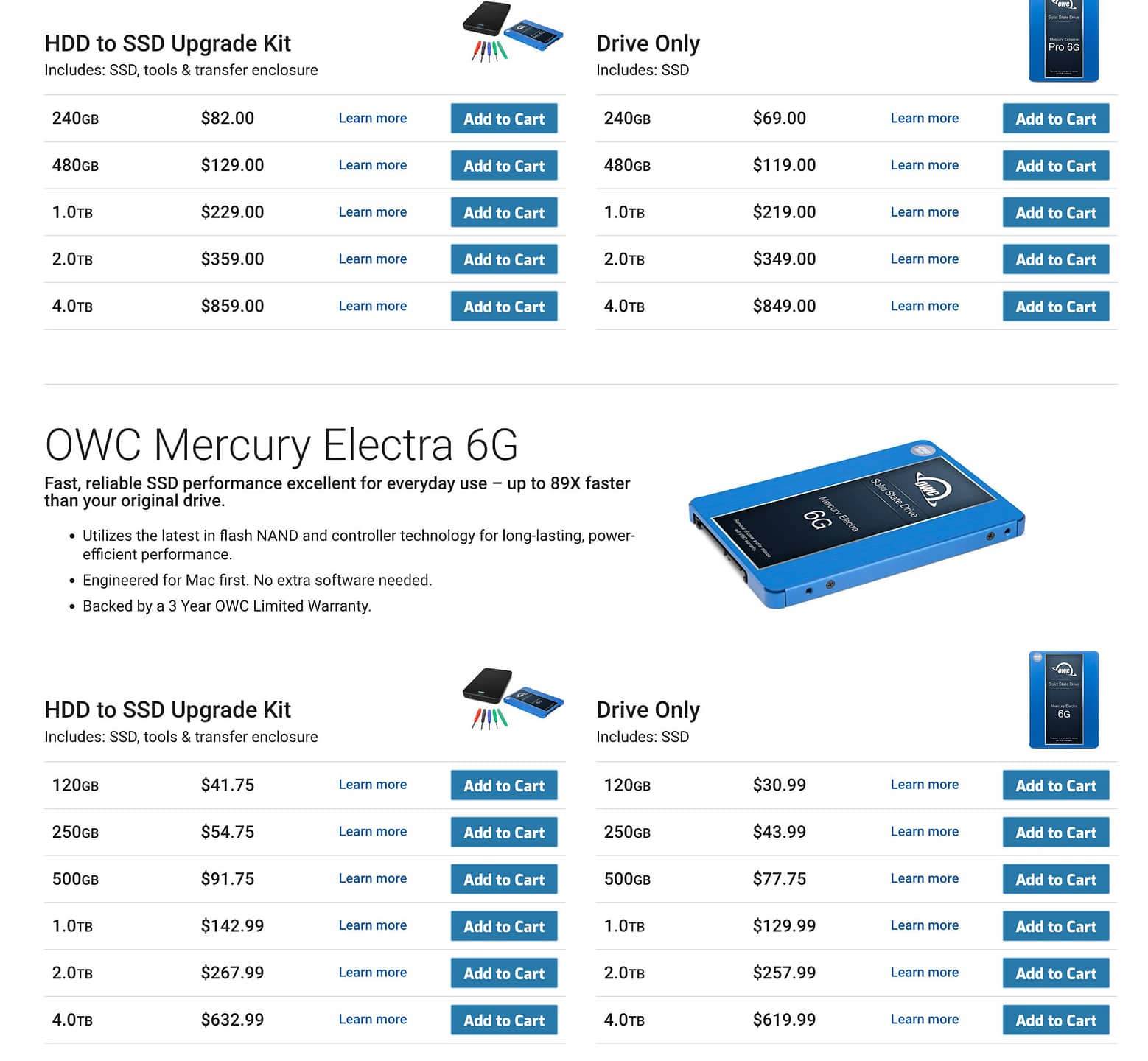Install SSD
Possible SSD Choices

Adivce
A Mac Mini 2012 only has a SATA III controller for a 2.5″ SSD so the SSD speed will at most be somewhere between 450MB/s to 500MB/s under optimal conditions.The worst SSDs to purchase are the cheap budget economy models like the Crucial BX500 series. The Crucial MX500 series works well. The OWC Mercury Electra or OWC Mercury Extreme are also good options. OWC used to make a cheap one as well (I think it was called “N”), but I don’t see is an option anymore.
Any SSD using TLC or QLC technology will have some ideosynchrasies and performance issues once the write cache has been filled. IIRC from my own personal tests on the Crucial MX500 series the write cache fills up after about 45 seconds of non-stop sequential writes and will slow down from about 450MB/s to 250MB/s and stabilize there (unless I’m thinkng of the MX300 series). It has been several years since I ran those tests. The cheap budget SSDs like the Crucial BX500 series will actually keep decreasing down to 40MB/s and even get stuck there for a long time. Most reviews do not test SSDs like this so it is very difficult to find reliable information about an SSD’s true write speed.
Each new version or generation of SSDs keep changing things. Most consumer level SSDs which you will find to purchase will behave this way to some extent. Consumer level SSDs are made for average consumer use where the average user will be reading more from the SSD than writing to it. Even if you find one that works better most likely you will be making a trade-off on some other feature or aspect and you will be paying significantly more money for it. Some SSDs use data compression so to get a real idea of performance the tests must be run with uncompressible data.
Even an expensive enterprise grade SSD is not the answer since they are tweaked for specific scenarios and situations.
Try to find an SSD based on MLC or SLC. If you can find one it will be expensive. Or buy a used Apple SSD if you feel Apple SSDs are the best and you trust buying used. I personally would be very careful. I’ve already seen some Apple SSDs wear out under normal use in some of organization’s laptops.
Keep in mind most SSD manufacturer’s do not provide platform or OS independent SSD firmware updaters. Crucial and OWC are the main exceptions. While Samsung does provide an .iso image file, this image contains a bootable DOS system which doesn’t work on a Mac when “burned” to a USB drive (it may work when burned to a CD). There may be ways around this limitation, but it would modifying the firmware updater’s bootloader using Linux bootloaders. Sandisk has been known to provide an OS independent SSD firmware updater, but you won’t find it easily on their website. I’ve seen mentions and links in their forums, but it is still extremely hard to locate them. Almost all other manufacturer’s expect you to use their Windows apps to manage the SSD or their SSD firmware updater is a Windows executable.
